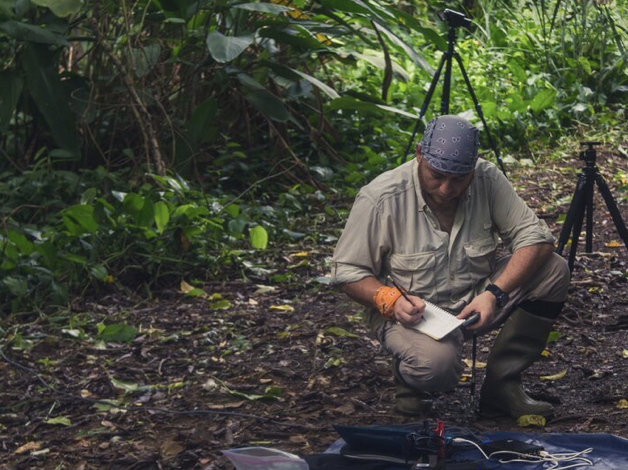Keep Exploring
Check out all these resources to continue learning about Behavioral Ecology
Behavioral Ecology
Behavioral Ecology is part of the following Field Guide(s):Insider Insights
Tips from Melquisedec gamba-rios-
Your path doesn’t have to look like anyone else’s. Look for what you're good at — not doing well in one class doesn't mean you're not good at science. You have to try different ways, different systems, different mentors... some sciences are better for people who love design or numbers or collaboration. Just be patient and look for your fit.
-
Science isn’t always easy, but it is a very rewarding career. Community really helps to explore possibilities, find career opportunities, and support you when things are difficult. You can find community by looking for peers, mentors, or even online groups that share your interests, and it’s never too soon to get started!
-
We all sometimes feel like we won't fit in or aren't accepted. When I arrived to my PhD I had a lot of fears and doubts coming from another country. It can weigh on you; but it’s important to remember that you are capable of being a successful scientist. You just need to build your confidence and find something that motivates you to put the work in.
Related Scientists
Check out other scientists and career paths similar to behavioral ecology or environmental conservation.
-

Daniel Wangpraseurt, PhD
Coral Engineer & Surfer
-

Kristen Lear, PhD
Bat Conservationist & Designer
-

Tina Cheng, PhD
Quantitative Ecologist & Beach Volleyball Enthusiast
-

Wade Campbell
Archaeologist & Biker
Recommended Resources
-

Webinar on the Florida Bonneted Bat
Want to learn more about the most endangered bat in America and how Dr. Gamba-Rios is working to protect them? Check out this free webinar where he dives into the issues and research.
-

Get involved with 'Bat Squad'
“You don’t have to be an adult to help our bats! Kids across North America are getting involved in bat conservation in their own backyards. From science projects to lunchtime bat groups to social media campaigns, there are many ways for kids to get involved with helping bats!
The Bat Squad! webcast series, is for kids by kids. Kids can get involved in many different ways with bat conservation. From science projects to lunch time groups, the Bat Squad! shares the exciting ways they have got involved in their own backyard!” — Bat Conservation International
-

Learn how bats thrive in cities
“Every summer night, hundreds of people gather to see the world's largest urban bat colony emerge from under the Congress Avenue Bridge in downtown Austin, Texas. These 1.5 million bats are fun to watch, but they're also making our world a better place to live.” - BCI
-

Why bats aren't as scary as you think
“When we think of bats, an unfavorable image often comes to mind. Whether it's the scary portrayal of them in vampire films and literature or a general fear of how their real-life counterparts might transmit viruses, bats have gotten a bad rap that's actually more fiction than fact. Take a look at how many common bat misconceptions came about and just how vital bats are to our everyday lives.” — Nat Geo Explores
This spotlight was made possible by Bat Conservation International
Bat Conservation International is a global conservation organization dedicated to ending bat extinctions. It provides exciting opportunities to learn, engage in activities, and discover new media all about the incredible world of bats and why they are so important to people and the planet.
WEBSITE →
TWITTER →Looking for teacher resources?
PHOTOGRAPHER: Malena Vasquez • Illustrator: Ana Latese© 2024 THE PLENARY, CO. ALL RIGHTS RESERVED. TERMS. PRIVACY.This is a brand new site! See an issue? Let us know.



